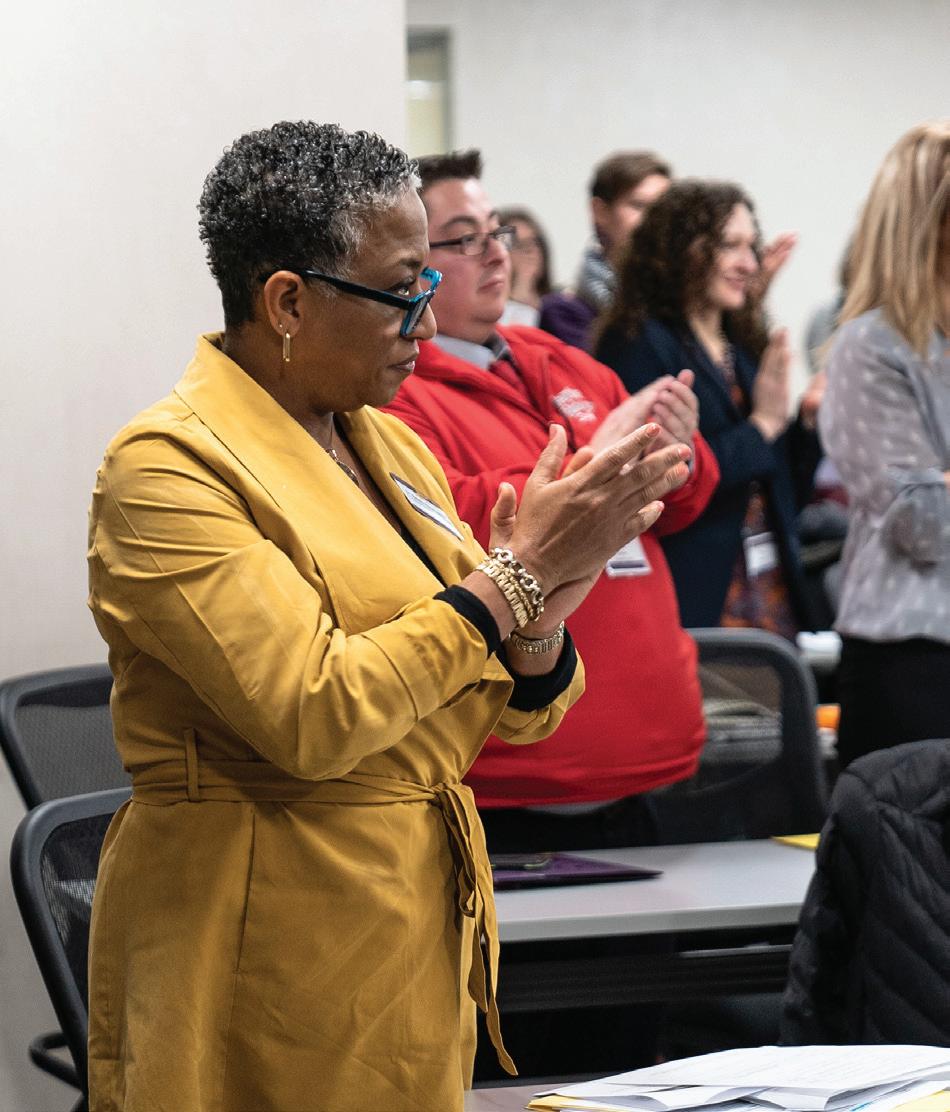
3 minute read
Longstanding and Ongoing Efforts to Prepare Educational Leaders
Minnesota schools are not only experiencing a shortage of teachers but also a shortage of school principals and superintendents. The Minnesota Department of Education estimates 70 practicing superintendents will not return for the 2022-23 school year and only 40 people are currently qualified to fill those positions.
It is relatively easy to understand how the unpredictable repercussions of the COVID-19 pandemic and the current political climate have increased the stress on principals and superintendents and exacerbated the shortage. But the shortage has been building for years.
Minnesota State Mankato’s College of Education has a history of proactively recruiting and preparing administrators. As far back as 1968, Minnesota’s State College Board approved graduate programs in secondary school administration, elementary school administration, general school administration, and counseling and guidance. The programs were designed to prepare graduates to meet state requirements for certification as principals, superintendents, and guidance personnel. According to the 1973-74 Graduate Programs and Admissions Manual, Mankato State College awarded the most graduate degrees in both school administration and counseling and guidance in the state. A survey in the 1970s reported nearly 25 percent of practicing school administrators in Minnesota had completed advanced degrees at Mankato State. Yet the university struggled to gain approval to offer doctoral programs. After more than 40 years of advocacy, persistent pressure, and documented need from many faculty and staff members—including Claire Faust, Bryce Lindsay, Robert Utermolhen, Scott Wurdinger, Jerry Robicheau, and others—the legislature approved Minnesota State Mankato’s Department of Educational Leadership to offer a doctoral program in educational leadership in 2009.
Minnesota State Mankato’s educational leadership programs that lead to licensure as a principal and superintendent are routinely near or at capacity. One of the most unique characteristics of the Department of Educational Leadership is its approach to addressing racial equity.
Natalie Rasmussen, chair of the Department of Educational Leadership said, “We unapologetically push the racial equity issue. Everyone [students, faculty, and partner districts] knows this is what is promised, delivered, expected. If they are uncomfortable, if this is not for them, that is fine, there are other programs. We don’t back down because we are afraid to lose a couple of people. This is what we do. We think it is the best for students and for the state.”
Rasmussen continued, “Minnesota has one of the largest gaps between White and Black, Indigenous, and People of Color in everything: education, healthcare, wealth, home ownership. If a district puts someone in a position of great power who doesn’t know how to navigate racial
Graduate students discussing plans.
inequity, how to strategically ameliorate that, we will simply get more of the same. A lot of taxpayer dollars are spent to maintain the status quo.”
As they work to improve equity, school administrators need to be prepared to navigate and confidently advocate for racial equity in a politically charged environment. They cannot do that without first understanding how their own ideas about equity were formed. All educational leadership programs require students to explore how they developed their ideas about race and how those deep-seeded ideas affect their practice. “When our students learn technical skills related to things like budget, education law, and unions, they can just learn it. When it comes to racial equity, learning is often a 2-step process. Before we can learn, often we must unlearn.”
In addition to knowing themselves and how their personal history informs their practice, school administrators must be excellent listeners, problem solvers, and transparent leaders. Great administrators are curious about others and work to find solutions where everyone gets something.
To recruit the best candidates possible, the department began looking at different criteria. “We learned the GRE was not a predictor of anything, so we eliminated the requirement,” said Rasmussen. Instead, the program asks applicants what they have done in the field and why they want to be administrators. The program actively recruits a diverse candidate base. The Department of Educational Leadership admission demographics are diverse in markers like gender, race, religion, and LGBTQ status.
Rasmussen said the department also prioritizes faculty advising. “We provide responsive faculty support. We stay connected after graduation. We know our approach is working as we see students who come for one program and stay or return for another.”

Dr. Natalie Rasmussen attending an Educational Leadership event.






